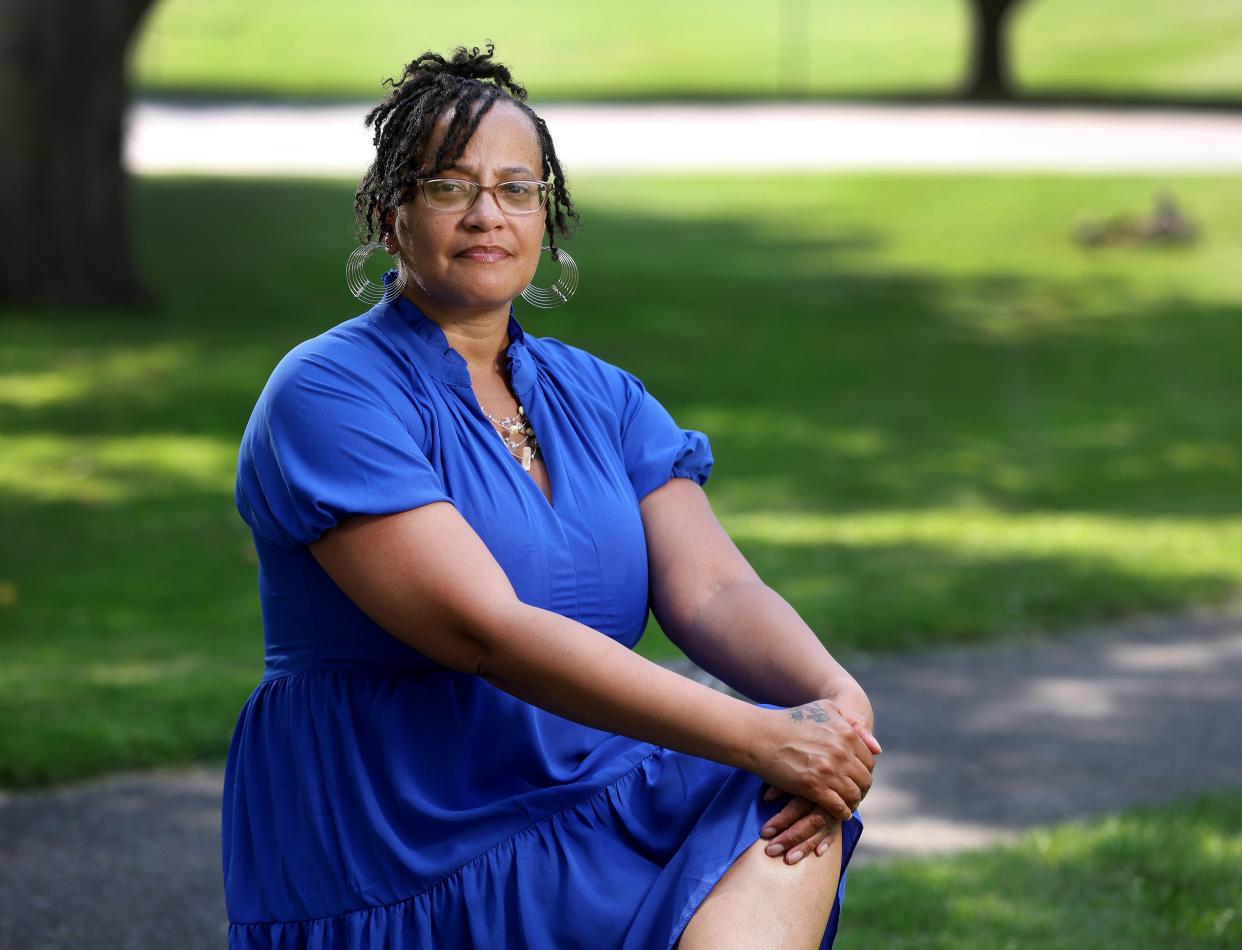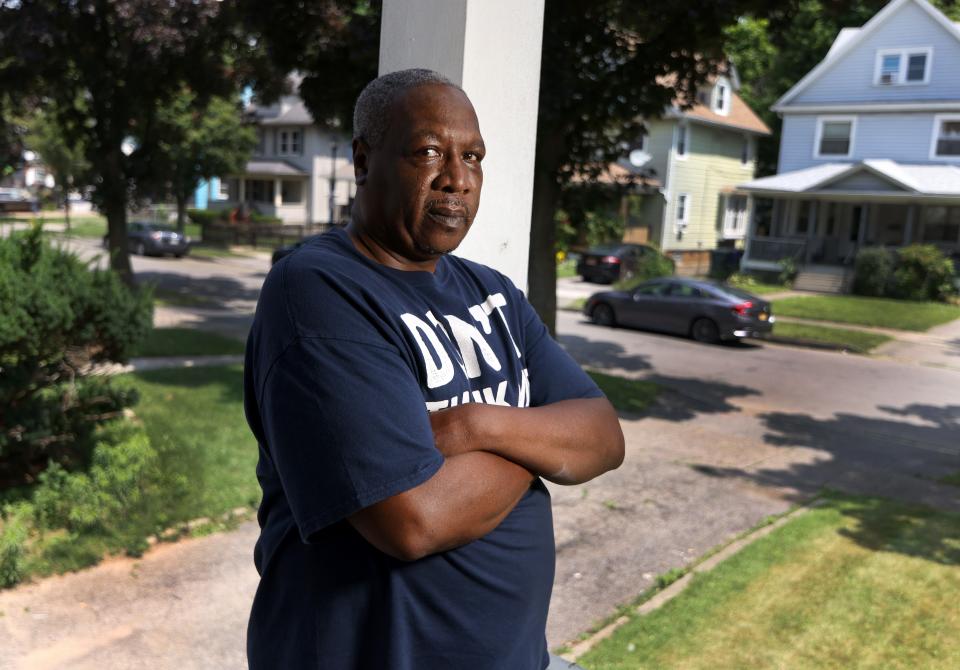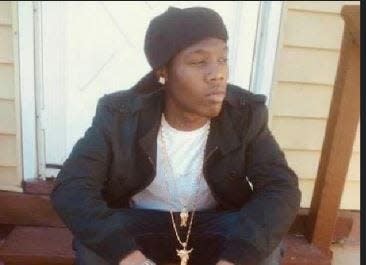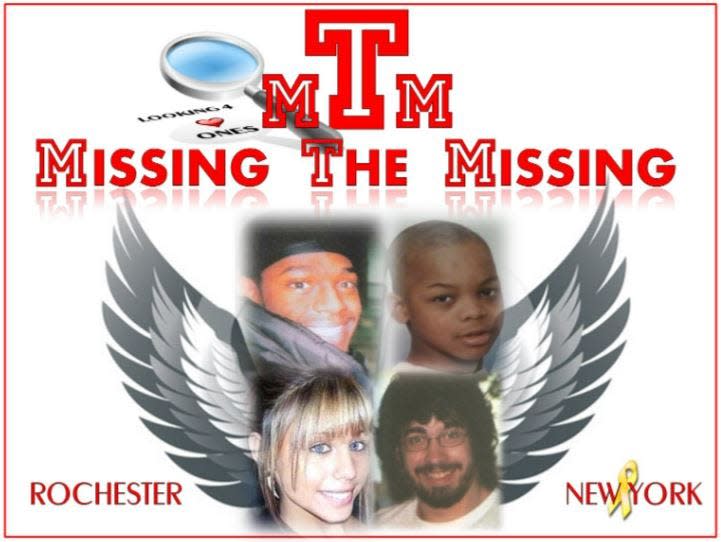'Missing the Missing' offers support, advocacy for families of missing individuals in Rochester

In the heart of Rochester, Nicole Coleman is working to bring attention to missing person cases and provide vital support to the families left behind.
What started as a group of family and friends helping in the search for Coleman's missing nephew in 2011, quickly grew into a beacon of hope. With help from other local families with missing children, ‘Missing the Missing’ was born. But as time went on and community support dwindled, the work became too overwhelming for the group.
Around 2014, Coleman decided to take a step back from ‘Missing the Missing’ - but now, after a decade hiatus, Coleman plans to relaunch the community resource.
The organization's core mission is two-fold: to provide comprehensive support services to families affected by missing person cases and to advocate for improved policies and procedures within law enforcement agencies and the media. Coleman hopes 'Missing the Missing' can continue its work on creating a more effective response to missing person cases in Rochester.
“With the right people behind us, with the right organizations, with the right politicians, the police department, we can figure this out. It's not a lost cause,” Coleman said.
One of the primary services offered by the group is emotional support for families.
Ray Bradley, the father of missing 20-year-old Johnny Bradley, has been carrying the weight of his son’s disappearance since 2005. For Bradley and many other families, ‘Missing the Missing’ became a space for them to find strength within each other.
“You know, those first couple of days not knowing what's going on with your loved one is nerve-racking," Ray Bradley said. "It's heart-wrenching. It's so much that your emotions go through. So, I knew what they were feeling.”
Coleman says her goal for ‘Missing the Missing’ now is to provide other families with the support that wasn’t available for her own family.
How 'Missing the Missing' helps Rochester NY families

One of the biggest struggles for many families after their loved one goes missing is figuring out their next steps. For Coleman, it was like living in a nightmare with no direction, no way out. Because of this, ‘Missing the Missing’ wanted to bridge that gap and create a plan for families to follow. This usually consisted of garnering attention for the case on social media, reaching out to local media, passing out missing person fliers, and holding search parties.
“We would hit the streets running to make it aware and we bought home a few kids that way,” Ray Bradley remembers.
In the past, the group tried to work with law enforcement, media outlets, and other community organizations to raise awareness about missing persons cases. They held events and invited agencies such as The National Center for Missing and Exploited Children to educate the community on the resources available to them. Coleman says she hopes to see even more support from local police departments and other agencies this time around.
“I can't know that this is going on and not do anything about it,” Coleman said.
Why 'Missing the Missing' started

Alonzo Williams, Coleman’s nephew, vanished from his Rochester home on Nov. 21, 2011. Rochester police classified him as a runaway, a categorization his family strongly disagreed with. Coleman felt her family’s concerns were continuously dismissed.
“Even though this is your job, you came, but you left your concern somewhere else”, she remembers thinking.
Displeased with police efforts, Coleman said she knew they were going to have to take matters into their own hands. Within months, she reconnected with two childhood friends who, to her surprise, were also dealing with the disappearance of their own children - revealing the alarming reality of ignored cases of missing Black children with minimal media attention in Rochester, she said.
“I knew these people personally, but there's no coverage, there's no airtime, there's nothing in the public," Coleman said. "At this point for me, it felt like Black people missing was the city's best kept secret."
More: If your missing child ran away from home, the police may not look for them
Her friend, Mozell Jones-Grisham called as soon as she heard about Williams’ disappearance. She wanted to offer her support and explore ways she could assist in their search efforts. Jones-Grisham herself had a missing son, Domonique Holley-Grisham, who went missing in 2009. He too was classified as a runaway.
When Ray Bradley, another childhood friend of Coleman’s, reached out, she says she remembers thinking he was probably just looking to support her and her family. She had no idea that his son, Johnny Bradley, had been missing since 2005. Like Williams and Holley-Grisham, Johnny Bradley was also marked with the runaway classification. Together these families began to realize their loved one’s cases were not isolated incidents.
Research shows that across the country, missing Black children are disproportionately classified as runaways. USA Today reported in April 2023 that this classification often leads to less effort by police and media, including a lack of public notifications that could quickly alert the community of a child’s disappearance.
“We’re Black and Brown people, we’re not gonna get the attention and level of concern we felt like we needed,” Coleman said.
Together these families decided to turn their pain into action.
Families unite to remember missing loved ones

After Alonzo Williams was found dead in March of 2012, Coleman couldn’t help feeling like she had failed her family - but she knew that her work with ‘Missing the Missing’ wasn’t over. The families of Brittanee Drexel and Brian Sullivan, two other local missing persons, eventually joined the group and together they created a flyer to honor all of their children.
Over the years, ‘Missing the Missing’ was able to reunite a handful of families with their missing loved ones. Coleman thinks back to the time they went to the hospital to support a family whose son they had just found.
Mozell Jones-Grisham sat next to her in the waiting room and sobbed. She said she couldn’t understand how they were able to help find other children, but not her own.
“I said the structure that we have in this organization now to help another family is not something that we had," Coleman recalled telling her. "We're the template for what's to come."
To learn more
To learn more about 'Missing the Missing' or to seek assistance, visit their Facebook page.
This article originally appeared on Rochester Democrat and Chronicle: 'Missing the Missing' helps families of missing persons in Rochester NY

